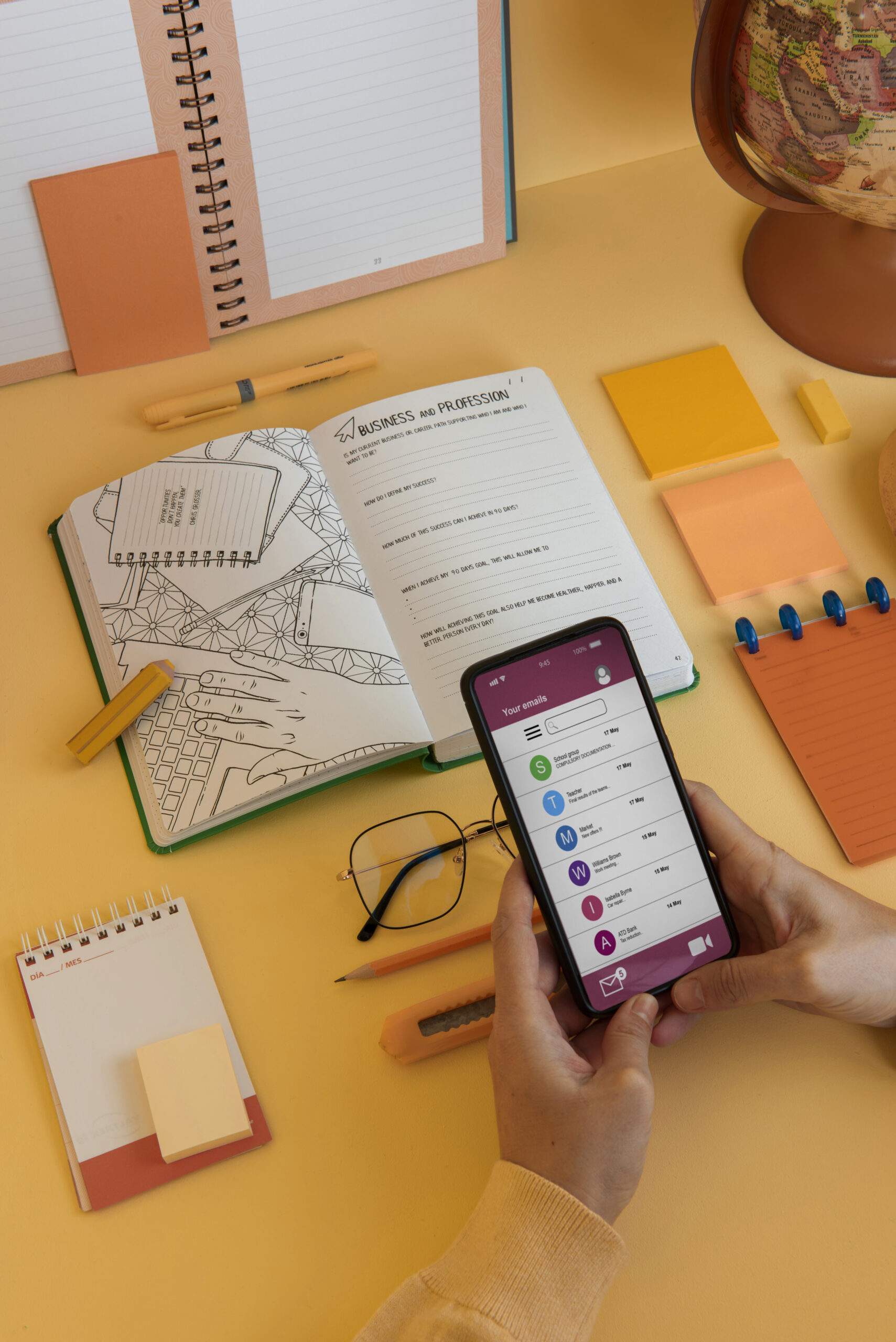
introduction to Mobile Learning (M-learning):
Mobile learning (M-learning) revolutionizes education by providing on-the-go access to
learning resources via smartphones and tablets. It extends education beyond traditional
settings, enabling learners to engage with content anytime, anywhere. This flexibility
caters to the dynamic needs of modern lifestyles, making learning more accessible. M-
learning’s significance lies in its ability to break down physical barriers, ensuring
continuous educational opportunities, and fostering a culture of lifelong learning that
aligns seamlessly with the demands of today’s mobile-centric society.
Introduce the flexibility and convenience it offers to learners.
Ubiquity of Mobile Devices:
the widespread use of smartphones and tablets, emphasizing their role as ubiquitous
learning tools.
Their versatility empowers learners, providing instant access to a wealth of educational
resources. From interactive apps to digital textbooks, smartphones and tablets facilitate
learning on-the-go, enabling users to engage with educational content at their
convenience. This accessibility underscores the transformative impact of mobile
technology on education, democratizing learning and breaking down traditional barriers to
knowledge.
Advantages of M-learning:
including flexibility, portability, and the ability to learn anytime, anywhere.
Learners can engage with materials anytime, anywhere, fitting seamlessly into their
lifestyles. This on-the-go accessibility caters to diverse learning preferences and
schedules, fostering a culture of continuous education. M-learning’s adaptability
accommodates individual learning styles through various formats, enhancing
comprehension. The convenience and personalized nature of mobile learning make it a
powerful educational tool, breaking down barriers and promoting a dynamic, learner-
centric approach to knowledge acquisition.
Diverse Learning Formats:
Mobile devices support diverse learning formats, transforming education into a dynamic
and interactive experience. Video lectures bring lessons to life, enhancing visual and
auditory learning. Interactive quizzes engage learners actively, promoting retention and
application. E-books provide portable, on-the-go access to a wealth of knowledge. The
versatility of mobile learning accommodates different learning styles, offering a rich array
of educational resources that cater to individual preferences, creating a personalized and
effective learning environment.
Collaborative Learning through Mobile Apps:
Collaborative learning takes a transformative turn with mobile apps, fostering dynamic
engagement and knowledge exchange. These apps facilitate seamless group projects,
discussions, and real-time collaboration, transcending geographical barriers. Learners
can connect, share insights, and collectively problem-solve, creating a vibrant community
of knowledge. Mobile apps enhance social learning experiences, making education not
only a solitary pursuit but a collaborative journey. Whether through project management
tools or interactive platforms, collaborative learning via mobile apps encourages
teamwork, peer interaction, and the synthesis of diverse perspectives, cultivating a rich
educational environment that prepares learners for the collaborative demands of the
modern world.
Gamification and Interactive Content:
Mobile learning transcends traditional methods through the integration of gamification
and interactive elements. Quizzes, badges, and simulations create engaging
experiences, promoting active participation. Gamified features not only make learning
enjoyable but also boost motivation, encouraging learners to progress and achieve
milestones. This blend of education and entertainment enhances comprehension and
ensures a captivating and effective mobile learning experience.
features like quizzes, badges, and simulations enhance engagement.
Corporate Training and Professional Development:
Mobile learning plays a pivotal role in modern corporate training programs, offering
flexibility and accessibility. Through smartphones and tablets, employees can access
training materials anytime, fostering continuous skill development. Mobile platforms
facilitate on-the-go learning, enabling professionals to engage with content at their
convenience. This adaptability aligns with the demands of today’s fast-paced business
environment, promoting efficiency and individualized learning paths. Mobile learning in
corporate training enhances employee engagement, knowledge retention, and ensures a
workforce equipped with the skills necessary for success in an ever-evolving professional
landscape.
Businesses leverage mobile platforms as powerful tools for continuous skill development
and employee training. Mobile learning facilitates on-the-go access to training materials,
enabling professionals to enhance their skills at their convenience. The adaptability of
mobile platforms ensures that employees can engage with educational content in a
flexible manner, promoting a culture of continuous learning. Through interactive modules
and real-time feedback, mobile training enhances engagement and knowledge retention,
equipping the workforce with the evolving skill set required in today’s dynamic business
landscape, fostering a proactive approach to employee development within
organizations.
Challenges and Solutions:
Mobile learning faces challenges like device compatibility and limited screen size.
Ensuring content optimization for diverse devices addresses compatibility issues, while
innovative design strategies overcome space constraints. Balancing engaging visuals
with efficiency in limited space is key, promoting an effective and user-friendly mobile
learning experience despite these challenges.
technological solutions and strategies to overcome these challenges.
Adaptive Learning and Personalization:
Mobile learning platforms excel in delivering adaptive and personalized learning
experiences. Leveraging advanced algorithms and user data, these platforms tailor
content to individual needs, ensuring a customized educational journey. From adaptive
assessments adjusting to learners’ progress to personalized recommendations based on
performance, mobile learning platforms optimize engagement. This adaptability not only
accommodates various learning styles but also fosters a sense of ownership, making
mobile learning a potent tool for efficient and personalized knowledge acquisition in
today’s dynamic educational landscape.
the role of AI and analytics in tailoring content to individual learner needs.
The integration of Artificial Intelligence (AI) and analytics in mobile learning revolutionizes
education by tailoring content to individual learner needs. AI algorithms analyze user
interactions and performance data, providing real-time insights. This data-driven
approach enables adaptive learning experiences, adjusting content difficulty, pacing, and
format according to learners’ proficiency levels and preferences. The result is a
personalized educational journey, optimizing engagement and knowledge retention. AI
and analytics enhance the efficacy of mobile learning, offering a dynamic and responsive
platform that caters to the unique requirements of each learner, marking a significant
advancement in educational technology.
Future Trends and Innovations:
Mobile learning embraces dynamic advancements, with emerging trends like augmented
reality (AR) and virtual reality (VR) applications reshaping the educational landscape. AR
overlays digital information onto the real world, offering interactive experiences. VR
immerses learners in virtual environments for a more immersive educational encounter.
These trends unlock new dimensions of engagement, transforming traditional learning
into interactive and captivating experiences, showcasing the exciting potential of mobile
technology in shaping the future of education.
Advancements in technology promise to shape the future of mobile learning (M-learning).
From artificial intelligence to augmented reality, these innovations will enhance
accessibility, personalization, and interactivity, propelling M-learning into a dynamic and
transformative educational frontier.
Statistics
Educational App Downloads:
The number of downloads for educational apps, including those focused on mobile
learning, continued to rise.
Global Mobile Learning Market:
The global mobile learning market was projected to witness substantial growth, driven by
the increasing adoption of smartphones and tablets.
Mobile Device Penetration:
The widespread use of smartphones and tablets globally contributed to the popularity of
mobile learning.
